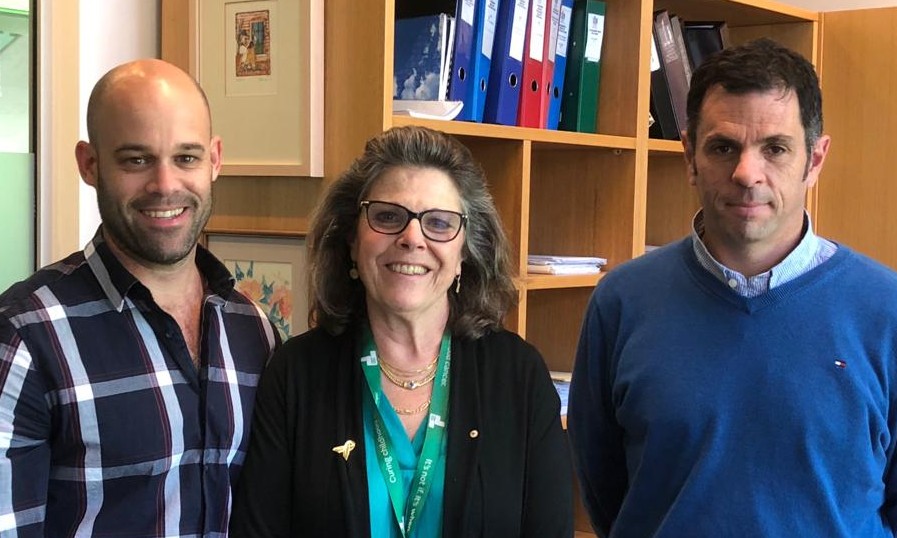Kira Radinsky ’08, Ph.D.’12, is a detective of sorts, but she’s not looking for light-fingered employees or cheating spouses. She’s seeking causalities and patterns that connect seemingly unrelated occurrences to spot the early warning signs of high-impact future events, including political riots and disease epidemics. A visiting professor at the Technion since 2016, her latest work focuses on COVID-19.
Professor Radinsky developed her research as a doctoral student in the Henry and Marilyn Taub Faculty of Computer Science at the Technion, while working simultaneously at Microsoft from 2009 to 2012. Employing data mining and machine learning, she built a system of predictive analytics that could cull reams of news articles, web searches, emails, and tweets for connections. It was during these years that she made her first breakthrough.
“In April 2011, our system identified a news article about a drought in Cuba,” she said. Prof. Radinsky had already connected droughts to cholera but that one event alone was not significant. “Then a year and a half later, after we’d forgotten about this news,” she said, “the system identified the second step of the pattern: tropical storms.” Based on her work, which discovered that droughts followed later by storms occurred in 84% of cholera cases, she alerted relief organizations. Cholera soon came to Cuba, and Prof. Radinsky was credited with predicting that country’s first outbreak in 130 years.
Prof. Radinsky also worked with the Bill & Melinda Gates Foundation trying to uncover patterns that might predict Ebola outbreaks. Employing her analytics, she found a connection that began, oddly enough, with gold mining. Prospecting for gold and diamonds caused deforestation, which led animals, particularly bats, to migrate from their forests often towards more developed areas.
When Ebola broke out in Africa in 2014, Patient Zero was believed to be a two-year-old child in Guinea who contracted the disease by eating tainted, raw bushmeat of bats.
Around the same time, Prof. Radinsky was living in the U.S. and started SalesPredict. Combining her artificial intelligence and predictive analytic system with marketing data, SalesPredict aimed to predict customer buying behavior. The San Francisco-based company was sold to eBay in 2016.
For a period, she focused her system on finding the next new drug. “But bringing drugs to the market takes years,” Prof. Radinsky said. “I was looking at how I could make an impact today.” So in 2017, she launched Diagnostic Robotics with co-founders Technion Professor Moshe Shoham, whose entrepreneurial track record includes Mazor Robotics, and alumnus Jonathan Amir, B.Sc. ’16. The data-driven prediction platform helps hospitals and medical clinics streamline and improve patient care.
The system was up and running in several hospitals in Israel, “and then COVID happened,” she said. “We were approached by the Ministry of Health and asked to extend our clinical system.”
Adapting Diagnostic Robotics’ existing technology, the team created a digital risk assessment and monitoring platform to track the spread of COVID-19 in Israel. The platform includes a questionnaire that medical workers use in clinical settings to assess patients’ risk for COVID-19 based on their symptoms, travels, and personal medical history. Individuals can access the questionnaire remotely via their smartphone and seek treatment.
That information is analyzed to pick up population trends. Each day, Diagnostic Robotics provides the Israeli Ministry of Health epidemiological maps highlighting the COVID-19 hotspots and predicting its path. On April 4, 2020 Diagnostic Robotics predicted that the pandemic was on the rise in the towns of Migdal HaEmek, Tiberias, and Ashkelon. The government verified those predictions and instituted a lockdown two days later.
Diagnostic Robotic’s system is now used by all four of Israel’s HMOs and Israel’s emergency services. Internationally, the platform has been implemented by the State of Rhode Island and in the State of Odisha, India.
Prof. Radinsky can’t predict when the pandemic will end. But the work she is doing today in tracking COVID-19 hotspots lays the groundwork for better management of future outbreaks.


